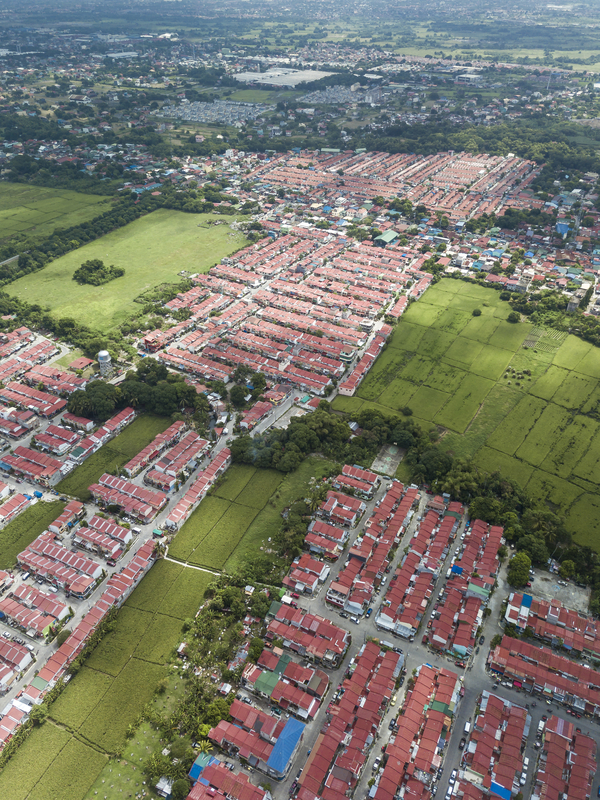The government faces a herculean task in addressing the housing needs of the Filipinos. Right now, the current
housing need is placed at 6.5 million dwelling units while production from both private and government average for less than 200,000 units per annum.

Ar.Leonardo Dayao Jr. national president of the Subdivision Housing Developers Association of the Philippines (SHDA) told the attendees of the recently concluded Philippines Furniture Furnishings Market (PFFM) that for 2021 to 2040, total housing need is placed at 2.06 million with an average of some 11, 544 per annum; requiring a total budget of P1.90 trillion with an average of P 105 billion per annum.
Meanwhile, Department of Human Settlements and Urban Development (DHSUD) Secretary Jose Rizalino Acuzar plans to build 6 million housing units under the Pambansang Pabahay para sa Pamilyang Pilipino (PPP) or 1 million housing units per year up to 2028.
Dayao said SHDA is targeting a P800,000-price ceiling for horizontal development projects while the government seeks a price range of P1.1 million to P1.5 million for vertical projects depending on the number of stories.
“We’re getting close to the pricing. It’s difficult to deliver the price of P580,000 especially with the price of land and construction nowadays. However, there are still opportunities in that segment by partnering with organizations such as Gawad Kalinga, Habitat for Humanity and local government units. We’re trying to come up with an agreement so we can start purchasing the land,” Dayao told reporters during the press interview.
Dayao said the government must hurdle some of the following challenges to address the housing backlog. These are:
- Access to land and for housing settlements;
- Sustainable and available funds for housing activities;
- Tedious permitting and licensing processes for housing development and construction;
- Taxes-incentives to the private sector participation in housing activities;
- Public housing program for the lower segment of the population;
- Affordable interest rates for socialized and public housing.
Dayao laid out some strategies to address the housing backlog such as active participation of the local government units, private sector developers and financial institutions in the implementation of the Pambansang Pabahay para sa Pamilyang Pilipino (PPP); implementation of the Comprehensive Land Use Plan (CLUP) and local shelter plans of the LGUs; among others.
Despite the challenges, Dayao said housing remains a bright prospect for the following reasons:
- The government policies and institutions are in place: Creation of the Department of Human Settlements and Urban Development (DHSUD). Three years from creation-SHDA has advocated for the creation of DHSUD;
- The government financial institution-the Home Mutual Development Fund has announced the availability of some P10 billion in 2022 for home-end buyers and members of the fund.
- The huge housing backlog and demand for quality housing specially after the pandemic will be addressed both by the government and private sector.
- The strong private sector participation in the government’s efforts to address the country’s housing need; the presence of SHDA and its strong regional membership;
- The Overseas Filipino Workers (OFWs)-strong market for the developers along with the government employees and the general increasing population and urbanization trend.
Dayao stressed the importance of public-private sector partnership in solving the housing backlog. He added the two parties could explore areas in providing affordable housing such as in-city low-cost condominuims; access to land and identification of beneficiaries; fast tracking permitting and licensing processes; direct subsidies for low-income families; low interest rates low-income segment; innovating and inclusive projects such as Building Adequate, Livable, Affordable, Inclusive (BALAI) rental, among others.
“It is inevitable for the government sector to double up its efforts, adopt innovative strategies and programs, encourage private sector participation, and segmentation of housing needs and intervention channel more funds to address the spiraling housing need,” Dayao pointed out.
“Given all these, the housing sector remains a major contributor to the country’s economic development and general welfare. Over time, it has also shown very good prospects for a vibrant industry for the coming years,” he explained.
The Subdivision and Housing Developers Association (SHDA) Inc. is the leading industry association for housing and urban development in the Philippines. For over 50 years, we have actively partnered with stakeholders to strengthen the industry and create livable and affordable communities for all Filipinos.
The PFFM is bringing in diverse choices of high-quality furniture and furnishing products to fulfill the needs of the local market. The event will be held from July 5 to 7 at the SMX Convention Center.






























